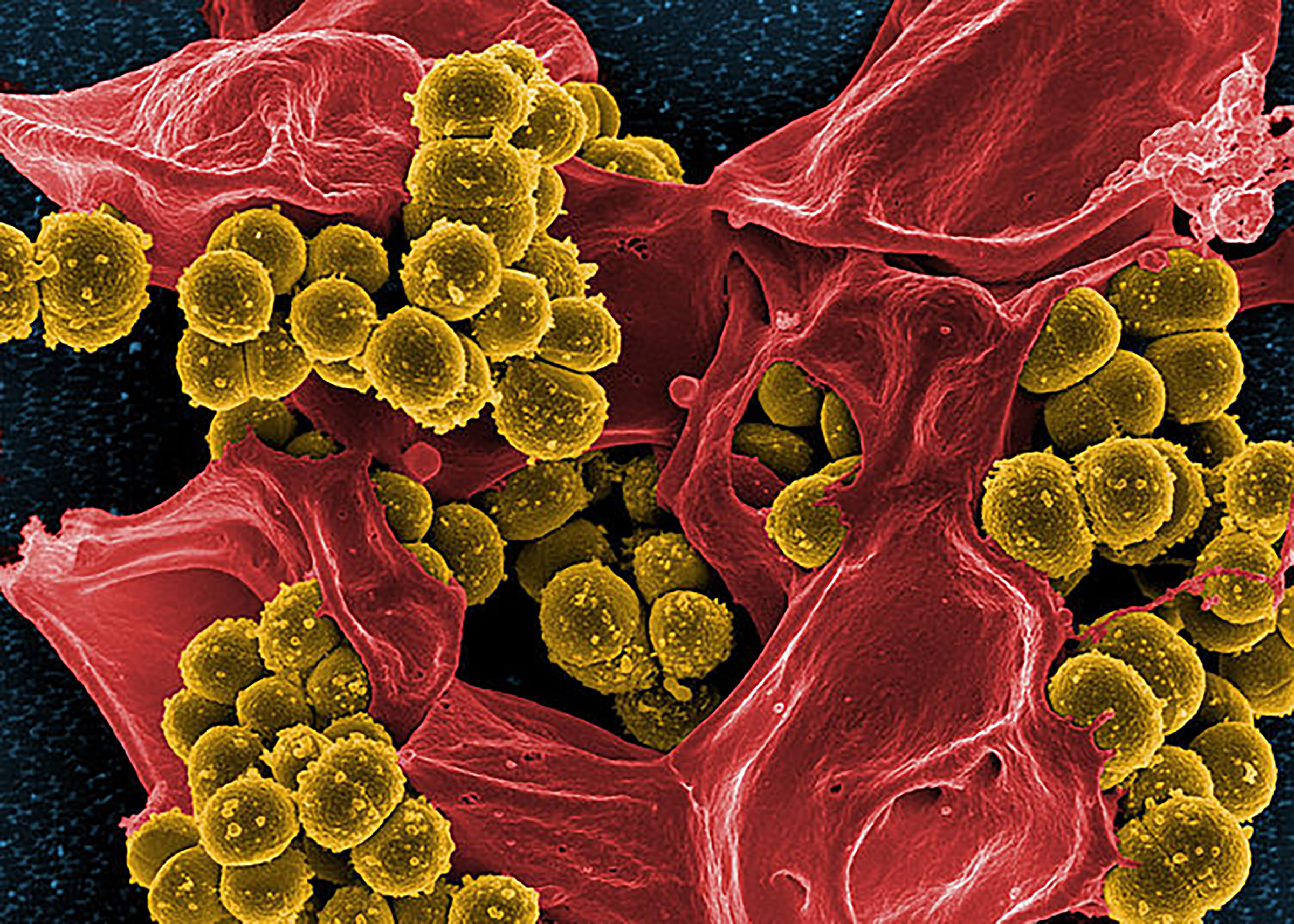
The increasing prevalence of antibiotic resistance, when infectious bacteria evolve to evade drugs designed to control them, is a pressing public health concern. Each year two million Americans acquire antibiotic-resistant infections, leading to 23,000 deaths. In light of these unsettling statistics, there has been a call to develop new weapons to combat bacterial threats to human health.
Scientists at the University of Utah and the University of Georgia have uncovered a pharmacological target that could enable development of novel drugs against antibiotic-resistant pathogens, including Methicillin-resistant Staphylococcus aureus (MRSA) and other infectious Gram-positive organisms such as Listeria and Mycobacterium tuberculosis. The target was revealed upon discovery of a Gram-positive bacteria-specific pathway for making heme, an essential iron-carrying molecule. The findings were reported in the journal, Proceedings of the National Academy of Sciences (PNAS).
